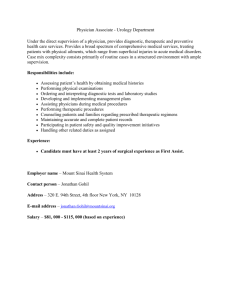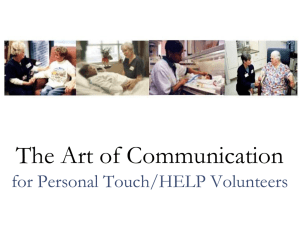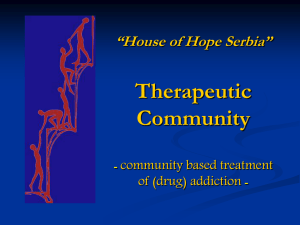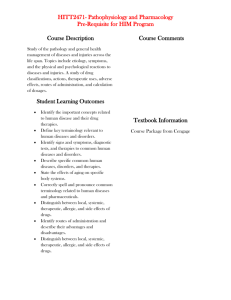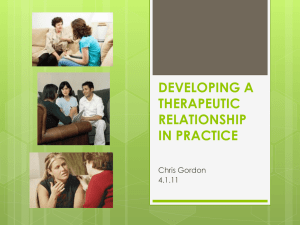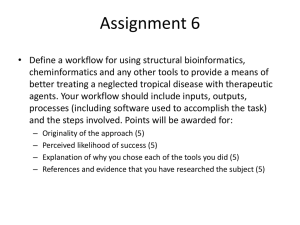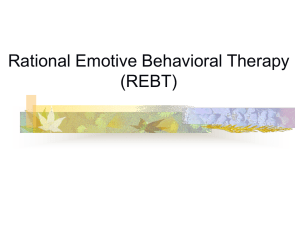2430 MS-Word - Maine Legislature
advertisement
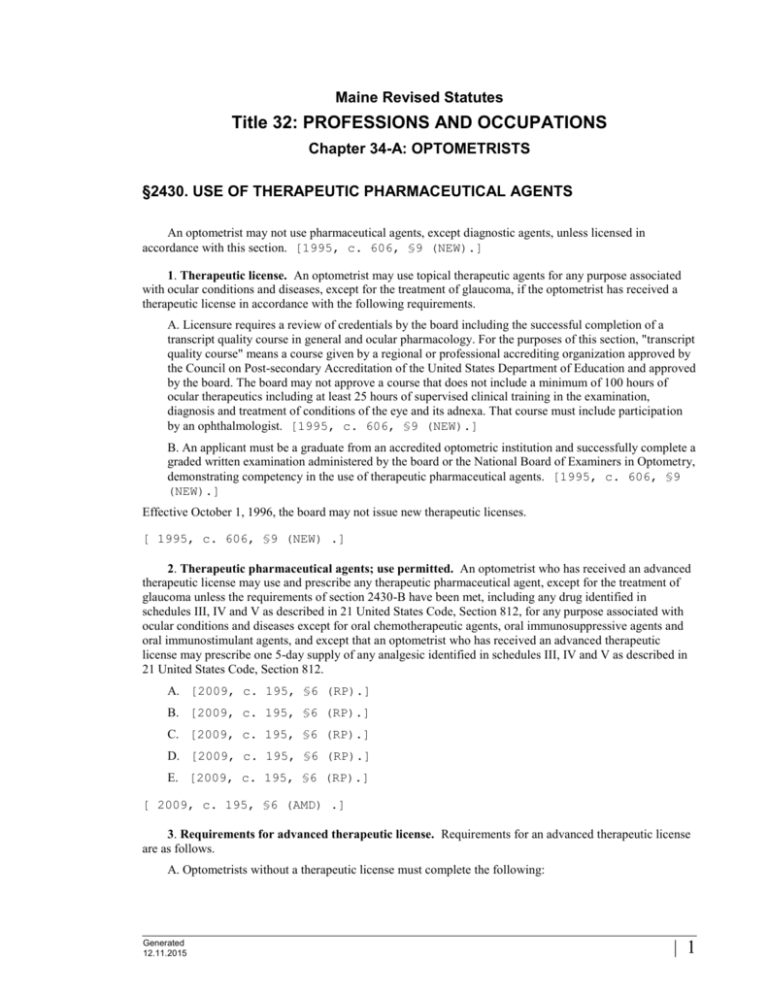
Maine Revised Statutes Title 32: PROFESSIONS AND OCCUPATIONS Chapter 34-A: OPTOMETRISTS §2430. USE OF THERAPEUTIC PHARMACEUTICAL AGENTS An optometrist may not use pharmaceutical agents, except diagnostic agents, unless licensed in accordance with this section. [1995, c. 606, §9 (NEW).] 1. Therapeutic license. An optometrist may use topical therapeutic agents for any purpose associated with ocular conditions and diseases, except for the treatment of glaucoma, if the optometrist has received a therapeutic license in accordance with the following requirements. A. Licensure requires a review of credentials by the board including the successful completion of a transcript quality course in general and ocular pharmacology. For the purposes of this section, "transcript quality course" means a course given by a regional or professional accrediting organization approved by the Council on Post-secondary Accreditation of the United States Department of Education and approved by the board. The board may not approve a course that does not include a minimum of 100 hours of ocular therapeutics including at least 25 hours of supervised clinical training in the examination, diagnosis and treatment of conditions of the eye and its adnexa. That course must include participation by an ophthalmologist. [1995, c. 606, §9 (NEW).] B. An applicant must be a graduate from an accredited optometric institution and successfully complete a graded written examination administered by the board or the National Board of Examiners in Optometry, demonstrating competency in the use of therapeutic pharmaceutical agents. [1995, c. 606, §9 (NEW).] Effective October 1, 1996, the board may not issue new therapeutic licenses. [ 1995, c. 606, §9 (NEW) .] 2. Therapeutic pharmaceutical agents; use permitted. An optometrist who has received an advanced therapeutic license may use and prescribe any therapeutic pharmaceutical agent, except for the treatment of glaucoma unless the requirements of section 2430-B have been met, including any drug identified in schedules III, IV and V as described in 21 United States Code, Section 812, for any purpose associated with ocular conditions and diseases except for oral chemotherapeutic agents, oral immunosuppressive agents and oral immunostimulant agents, and except that an optometrist who has received an advanced therapeutic license may prescribe one 5-day supply of any analgesic identified in schedules III, IV and V as described in 21 United States Code, Section 812. A. [2009, c. 195, §6 (RP).] B. [2009, c. 195, §6 (RP).] C. [2009, c. 195, §6 (RP).] D. [2009, c. 195, §6 (RP).] E. [2009, c. 195, §6 (RP).] [ 2009, c. 195, §6 (AMD) .] 3. Requirements for advanced therapeutic license. Requirements for an advanced therapeutic license are as follows. A. Optometrists without a therapeutic license must complete the following: Generated 12.11.2015 | 1 MRS Title 32 §2430. USE OF THERAPEUTIC PHARMACEUTICAL AGENTS (1) Licensure requires a review of credentials by the board including the successful completion of a transcript quality course in general and ocular pharmacology. For the purposes of this section, "transcript quality course" means a course given by a regional or professional accrediting organization approved by the Council on Post-secondary Accreditation of the United States Department of Education and approved by the board. The board may not approve a course that does not include a minimum of 100 hours of ocular therapeutics including at least 25 hours of supervised clinical training in the examination, diagnosis and treatment of conditions of the eye and its adnexa. That course must include participation by an ophthalmologist; (2) An applicant must be a graduate from an accredited optometric institution and successfully complete a graded written examination administered by the board or the National Board of Examiners in Optometry, demonstrating competency in the use of therapeutic pharmaceutical agents; and (3) Successful completion of a course of at least 25 hours devoted primarily to pharmacology and glaucoma, referred to in this section as the "Lancaster Course," or its board-approved equivalent, and 3 additional hours of a board-approved course in pharmacology dealing solely with antiglaucoma agents. The requirements of this subparagraph may be completed anytime after the 2nd year of optometric study. [1995, c. 606, §9 (NEW).] B. Optometrists with a therapeutic license must meet the following requirements: (1) Successful completion of the "Lancaster Course" or a board-approved equivalent course of at least 25 hours devoted primarily to the study of pharmacology and glaucoma. The requirements of this subparagraph may be completed any time after the 2nd year of optometric study; (2) Successful completion of 3 didactic hours of a board-approved course in pharmacology dealing solely with antiglaucoma agents; and (3) Successful passage of the Treatment and Management of Ocular Diseases (TMOD) component of the National Board of Examiners in Optometry examination on or after July 1, 1991. [1995, c. 606, §9 (NEW).] [ 1995, c. 606, §9 (NEW) .] SECTION HISTORY 1995, c. 606, §9 (NEW). 2009, c. 195, §6 (AMD). The State of Maine claims a copyright in its codified statutes. If you intend to republish this material, we require that you include the following disclaimer in your publication: All copyrights and other rights to statutory text are reserved by the State of Maine. The text included in this publication reflects changes made through the First Regular Session of the 127th Maine Legislature and is current through October 15, 2015. The text is subject to change without notice. It is a version that has not been officially certified by the Secretary of State. Refer to the Maine Revised Statutes Annotated and supplements for certified text. The Office of the Revisor of Statutes also requests that you send us one copy of any statutory publication you may produce. Our goal is not to restrict publishing activity, but to keep track of who is publishing what, to identify any needless duplication and to preserve the State's copyright rights. PLEASE NOTE: The Revisor's Office cannot perform research for or provide legal advice or interpretation of Maine law to the public. If you need legal assistance, please contact a qualified attorney. | 2 Generated 12.11.2015
